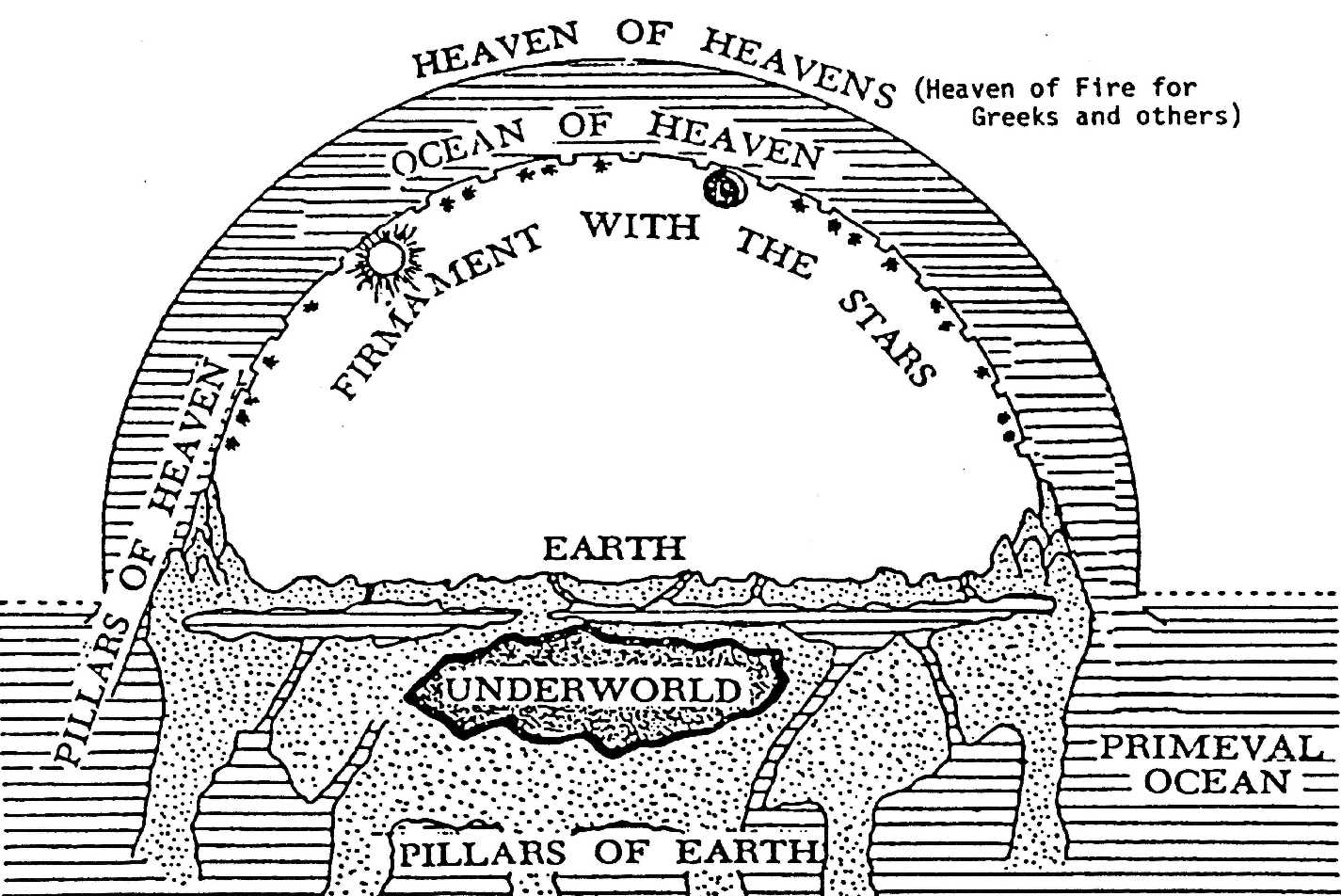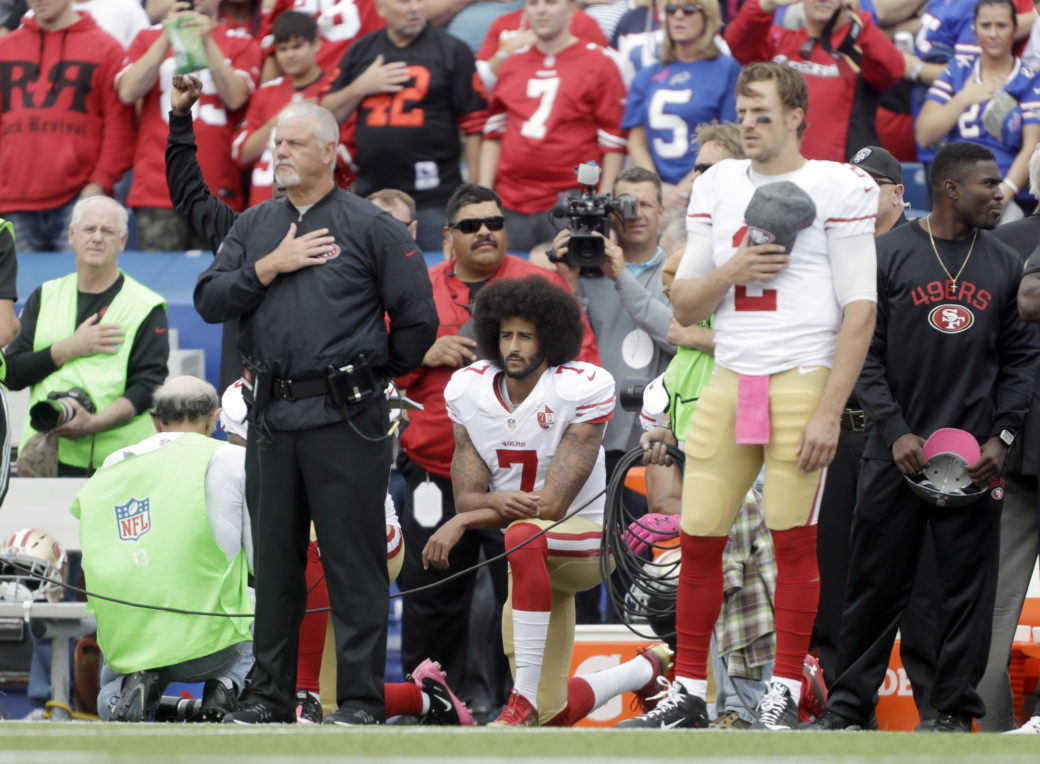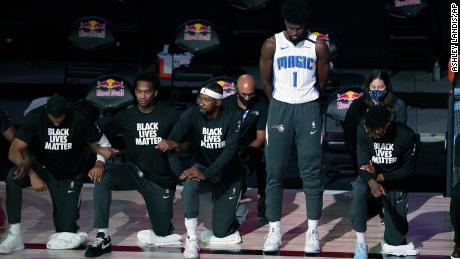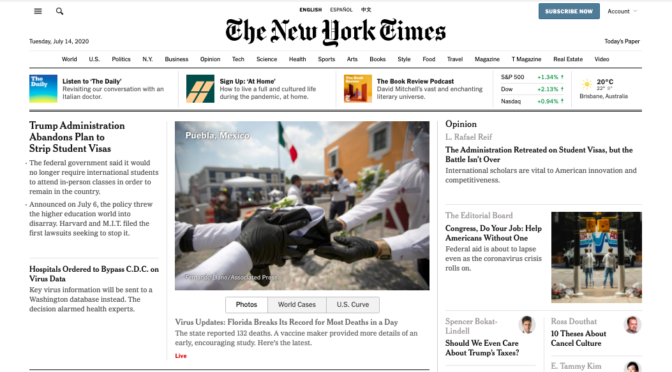Sometimes you have a series of events coincidentally, serendipitously or perhaps providentially landing on your lap and you’ve got to figure out if the connections you build in those moments are like those graphs that assume correlation is the same as causation (like 5G towers and Covid transmission, you know, where the correlation is actually population density), or like those moments where you’re Archimedes lowering himself into a bathtub while thinking about how to measure volume.
Yesterday was maybe one of those for me. So here I am, flying a little kite (this time like Benjamin Franklin), wondering if I’ll get hit by lightning.
As a parent, my number one desire for my kids — above all other desires — is not just that they cling to the faith modelled by their parents, but that they take it up and advance it. Clinging to it would be fine. Sure. But I don’t want the world to be a danger to my kids and their faith, I want them to be a danger to the world. This desire is behind my entire parenting strategy — from schooling decisions, to pedagogy (where I want them to play so they’ll disrupt and challenge status quos, not just be STEM formed cogs in an economic machine), through to what sort of pop culture (or high culture) they engage with, and even their extra curricula participation. I haven’t read N.D Wilson’s book where this quote comes from, but it has long stuck in my head:
“The world is rated R, and no one is checking IDs. Do not try to make it G by imagining the shadows away. Do not try to hide your children from the world forever, but do not try to pretend there is no danger. Train them. Give them sharp eyes and bellies full of laughter. Make them dangerous. Make them yeast, and when they’ve grown, they will pollute the shadows.”
Yes. More of that.
I fear that so much of Christian culture ends up being ‘defense against the dark arts’ rather than ‘attacking the darkness’ — we pull our punches in the formation of kids so that mere belief in a bunch of propositional truths, and knowledge of the books of the Bible and some Colin songs are going to be all they have in the kit bag when they eventually step outside the Christian bubble.
Yesterday my youngest daughter asked a dear friend of ours, an adult — a parent with her own children even — ‘Han, why do you come to church?’… Han gave her a brilliant, coherent, and best of all ‘not from mum and dad’ answer about why church is good not just necessary. Ellie’s own answer was ‘mum and dad make me’ — so we’ve still got some work to do. But she’s five. We might have a year or two left if the Jesuits were right…
We’re in the process of stepping our church community towards independence from our mother ship. We’ve been a campus of a multi-site church that has a well resourced kids program, and pumps out terrific kids curriculum. It’s not a static mega-church monster either; the kids and youth leaders at our mother ship ask hard questions about discipleship, and pedagogy, and are committed to a ‘discipleship based’ model where the relationship between leaders and their kids is a big feature.
We’ve always integrated the teaching program for the kids with what the adults are hearing in the room next door, so that families can have conversations about the same subjects and grow towards Christlikeness together. It’s a great model. It’s hard to duplicate without the resources the mother church has — from kids pastor (who is excellent), to creative people who make videos for kids (who’re excellent), to teams of young leaders who can serve our kids and go to another service in the evening. We’re going to have to step towards an adapted model — and the question is whether we’re going to step back from the pointy ‘cutting edge’ of kids ministry that our mother ship is positioned at, into the slipstream, or run the risk of jumping ahead of the point.
Whatever decision we make is going to rely on our resources, but it’s also going to have to be an expression of our theological anthropology — our understanding of how people (and children are people) are formed, and what we hope to see people formed into. If we want our kids to be dangerous, like I want my own kids to be, we want them to have a cutting edge — we’re making splayds not sporks… or something.
There are a few other building blocks in the mix here for me. First that I want part of the danger my kids bring to the world to be in the form of being both a faithful presence (to borrow from James Davison Hunter’s To Change The World), not withdrawn into a Christian bubble or enclave, but working in the institutions that help build a society, or creating cultural artefacts that make Christianity possible, or even plausible, as a way of life and belief. Second, that I want them to be a non-anxious presence, to borrow from Edwin Friedman’s A Failure of Nerve: Leadership in Anxious Times. I want my kids (and the kids in our church) to be leaders, rather than those who are led by the world (or at least people who follow good leadership). Third, I want my kids to be raised by a village of people — a community — or family, not just by me, to dilute some of my weirdness, but also to build the “plausibility structure” (in Peter Berger’s words) for Christian belief so that Christianity isn’t just something their weird parents buy into, but so many adults they know and love buy into as well; including adults who’ve got totally different lives to us; the lives my kids might one day lead, or that might have more in common with others who might lead my kids somewhere else. More on this later.
David Fitch’s Faithful Presence: Seven Disciplines That Shape the Church for Mission builds a little on Hunter’s vision of the church as a place that cultivates the sort of people who might change the world and its norms. In his chapter on ‘the discipline of being with children,’ Fitch talks about the way all our structures actually end up serving not the goal of being a dangerous ‘faithful presence’ but forming people who become anxious that the world is out to get them, and that they need to be protected. He says:
“The world has become a dangerous place for children. So we obsess about everything that could go wrong with our children. We obsess over their education and their ability to compete in the world marketplace for a job. We obsess about protecting them from the horrors of abuse, whether that abuse be sexual, physical, or emotional. We build sophisticated systems of surveillance for child abusers. We spend more per capita educationally in the United States than anyplace in the world. We fund more sports, art, music, and tutoring programs for children than any other society in the world. And yet actual parental time spent with our children might be at an all-time low. To pay for the best sports programs, schools, household comforts, and surveillance systems, the average family must have two incomes.”
That’s surely pretty true here in Australia too. We’re already feeling the pull of extra activities for our kids, and our oldest is only 8.
Fitch builds a system of ministry practices off those times in the Gospels when Jesus says he will be present in his people, for him, this ‘discipline of being with children’ comes from Jesus’ saying in Matthew 18, that “whoever welcomes one such child in my name, welcomes me.” I think Jesus is using the child as a metaphor, but this metaphor doesn’t eradicate the place children have in God’s kingdom — the idea that children are part of the body of Christ, and our work as the body towards maturity, not just distractions to be farmed out into some program, seems on the money to me. Fitch describes how they practice ‘being with children’ in his church.
“We decided to resist making children’s ministries into a program. We wanted to lead the community into being with our children. From the very beginning, when we were but a small Bible study, we asked every member, young, old, single, and married, to spend time with the children during a Bible story time. At various times we would say that by being with the children, you were being prepared to experience the kingdom. If you refused, you might be refusing the kingdom itself.”
Bible story time was the part in their service where the kids would go out; it happened while the sermon was happening for the adults. Fitch describes what this commitment for “every member” looked like.
“We adopted storytelling methods based on the curriculum called “Godly Play.” We emphasized adults getting on the level of the child, inviting God’s presence by the Spirit to be with us, then telling the story slowly, allowing space for wondering and questions, and above all being present to God. Adults spent time being with the children as they explored. This space between the adult and the child became sacred. We asked everyone in the church to participate in this ministry with children. There were regular teachers rotating in and out, but everyone was asked to participate. All adults were asked to be in the children’s ministry a minimum of once every eight weeks. They were asked to be present with our children, to know them, to be changed by them. This resulted in a community where our children could grow up recognizing Jesus not purely as a historical person and a doctrine, but as someone present to us in our daily lives. We recognized, in this screen-crazy society, the space for his presence would never be more available with our children than during these early years.”
I read this years ago, and, let me tell you, there are lots of reasons to do this and most people you ask to be involved in kids ministry seem to say no, almost as a reflex. Almost as though we’ve bought into a picture of growth and maturity and the life of the church that says our real growth is going to come through hearing God’s word, rather than participating in Jesus’ body, and that the hearing has to be at a particular level for it to do its work on us alongside our serving the body. Fitch digs into this objection a little, especially (but not only) when it comes to people who say they aren’t ‘gifted’ to be with kids, or parents who want church to be an escape from kids. It’s worth hearing his challenge. He says parents would say:
“We’re with our children six days a week. We’re exhausted. When we come to church gatherings on Sundays we need some ‘Jesus and me’ time.” It was clear that elements of (what I have called) exhaustion mode were at work here. We tried to open their imaginations for something more. We shared how God is at work in this space. That perhaps they could learn a new relationship with their children based not on control but in being with Jesus with them. Perhaps this could change the entire rest of the week they spend with their children. Perhaps various sports and arts programs during the week might become less important. This was the inertia we had to overcome in fostering a community that would be present to their children.”
His answer to people who say being with children is not their gift is brilliant, he says “being with children in our teaching ministry is not a spiritual gift. It is never mentioned in the Scripture as a spiritual gift. Instead, the church brings all its gifts to the space of ministry with children.” This is a big ask, but maybe it’s a necessary one? There’ll be compliance and training to go through to do this in accordance with child safety; and that might be another barrier that we throw up to say ‘it’s too hard’ — but while we’re small and starting out, that barrier is worth tackling head on, and once you start doing that, maybe it becomes part of our culture?
The “Godly play” curriculum Fitch mentions is something I’ve been doing some reading about, even as we think about how we shape our physical space where we meet so that kids feel welcome, rather than feeling like an afterthought. Play is part of Friedmann’s antidote to the age of anxiety. Friedmann says:
“Chronically anxious families (including institutions and whole societies) tend to mimic the reptilian response: Lacking the capacity to be playful, their perspective is narrow. Lacking perspective, their repertoire of responses is thin. Neither apology nor forgiveness is within their ken. When they try to work things out, their meetings wind up as brain-stem-storming sessions. Indeed, in any family or organization, seriousness is so commonly an attribute of the most anxious (read “difficult”) members that they can quite appropriately be considered to be functioning out of a reptilian regression. Broadening the perspective, the relationship between anxiety and seriousness is so predictable that the absence of playfulness in any institution is almost always a clue to the degree of its emotional regression. In an atmosphere where everything is dire, a vicious cycle develops, as a loss of playfulness destroys perspective.”
Play is also part of what might make us dangerous disrupters of the status quo because we’re able to imagine — because we’ve learned to imagine — something different. As Jurgen Moltmann framed it in his Theology of Play, play is liberating. He said “we enjoy freedom when we anticipate by playing what can and shall be different and when in the process we break the bonds of the immutable status quo.”
It might even be that an approach to children in churches that aims to make them dangerous to the world in the changes that they might bring aligned with the story of Jesus, rather than the world dangerous to them, and that includes the all members of the body, might actually benefit and form all of us — kids and adults — towards maturity. Maybe we need to become a little more dangerous too — not just in how we raise our kids, but in the example that we set for them as we seek to be a faithful presence in the world.
At the same time that I’m pondering the why and what and how of kids ministry, and our capacities as a small church that has been a bit like a toy boat in Archimedes’ bath, riding the waves as he splashed about following his epiphany, wondering if we’ll capsize, or if the surface of the water will normalise when that big mass is removed… we’re working our way through Ephesians. Which, can I say, is a cracking letter that should probably be immortalised for eternity. Paul has a particular model of formation — both a pedagogy (a method) and a telos (an end goal) — for Christian maturity in this letter. One that maybe could shape how we function as a church community, and how we seek maturity our selves, and in one another, and including the kids in our community in that ‘one another’ as parts of the body.
Paul seems to think that maturity isn’t going to be a product only of what we know, though knowledge is a good and important thing — but of being who we now are in Jesus, and in the body we’re united to by his Spirit. ‘Learning Jesus’ is something we do in community, not just as we receive content, but as we walk together with those in the body and practice the ‘new self’ in our relationships. Paul grounds this new walk in his ‘big story’ picture of reality in the chapters leading up to chapter 4; where he makes the stunning claim that the Christian has been brought from death — and the clutches of Satan — to life in Jesus, and that this isn’t just a future pie-in-the-sky reality, but rather, because God’s Spirit is dwelling in us we are already raised together with Christ, and seated together with Christ in the heavenly realms, such that our unity in him is a declaration of God’s grace, mercy, wisdom, and character in those heavenly realms, made to all those powers that once held us captive. But this new self — it’s worked out in a ‘walk,’ and a different walk to the way the Gentiles walk, it’s the walk we learn as we take our place in the body of Christ, the church, here on earth, and live as children of God ‘walking in the way of love.’
Paul’s pedagogy is a pedagogy built on example and imitation as we live out this story, these truths, together — and this story is what makes us dangerous to the world. It forms us to be a people who get our crap together in such a way that the default and destructive patterns of the world — patterns set up by Satan in opposition to us and to God — lose their power, and even, maybe, that we might be able to challenge them in anticipation of Jesus returning to make things on earth as they are in heaven.
In David Kinnamann and Mark Matlock’s book Faith For Exiles: 5 Ways For A New Generation to Follow Jesus in Digital Babylon, one of the practices Kinnaman and Matlock’s extensive research found produced ‘resilient disciples,’ that they believe is geared to resist a modern world where “screens disciple” our kids more than almost any human relationship, is “forging meaningful, intergenerational, relationships.” So much of our approach to kids ministry (and a reason people leave small churches for large ones) is the desire to find a ‘peer group’ for kids to relate to, Kinnaman and Matlock found that the more important relationships are non-peer relationships. In examining the challenges facing youth and kids growing up in the modern world, they said:
“Consider that this younger generation has grown up in the most corporate (in the business sense) expression of the local church since its inception. Its leaders have often acted more like entrepreneurs and showmen than prophets and shepherds. Meanwhile, churches have lost influence in their local communities. This generation is the first to form their identities—and their perceptions of church—amid high-profile sexual abuse scandals and sky-high levels of church skepticism. At the same time that the church is fighting back perceptions of irrelevance and extremism, social pressure is leading to more isolation. All of this means that young people have to travel a long road in order to find supportive relationships, inside or outside the church. This leads us to the third practice of resilient disciple making in digital Babylon: when isolation and mistrust are the norms, forge meaningful, intergenerational relationships. Resilient disciples’ connections in the church are far and away more extensive than those of habitual churchgoers, nomads, or prodigals. The vast majority of resilients firmly assert that “the church is a place where I feel I belong” and “I am connected to a community of Christians.”
In their research, conducted by the Barna Group in February 2018, Kinnaman and Matlock found that 77% of those meeting the criteria as ‘resilient disciples’ said they had “close personal friends who were adults from my church, parish, or faith community,” while only 27% of people surveyed who’d left the church said the same, at the same time, 72% of those who met the resilient disciples criteria admired the faith of their parents, while only 16% of those who left admired their parent’s faith. In another study, cited in Faith For Exiles, the Barna Group found that a significant number of us Christians, especially young Christians, believe that ‘discipleship’ is something we work on by ourselves, specifically saying “I believe my spiritual life is entirely private” (41%). Kinnaman and Matlock suggest our practices and programs are part of what has perpetuated this belief, that is profoundly at odds with Paul’s view of how maturity happens in Ephesians. They say:
“Yet so often church is created for the individual. Songs are sung vertically to God; we no longer sing “horizontally” to one another. Even sacraments like baptism are often described in terms of individual spiritual journeys, disembodied from the corporate experience of the body of Christ.”
Paul says:
“Instead, speaking the truth in love, we will grow to become in every respect the mature body of him who is the head, that is, Christ. From him the whole body, joined and held together by every supporting ligament, grows and builds itself up in love, as each part does its work.” — Ephesians 4:15-16
There’s no age limit on this. This is for adults, and for children. Maturity happens in relationships, in the context of the body; a body that pursues Christ likeness in community “as each part does its work.” Kinnaman and Matlock’s research suggests that this model is actually what keeps people committed to Jesus.
“The top relational predictors of resilient Christians are these: I feel connected to a community of Christians; the church is a place where I feel I belong; I feel loved and valued in my church; I feel connected to people older than me in my church.
Faith communities and Christian households, then, must become resilient villages designed with outcomes in mind.”
So what does this look like for me? As a parent? And as someone paid to pastor my own kids — where a big part of my motivation for having the job is to have a church that will disciple my kids in a world where following Jesus is still hard, and increasingly less plausible because the fabric of society and culture no longer supports belief in things that the Gospel assumes (like the existence of God, or objective moral or natural goods). This isn’t a task I am equipped to handle on my own. I could spend my life trying to convince my kids about sexual orthodoxy and the place sex has in God’s design, not just as a created good, but as something that testifies to and anticipates the new creation. And they might believe me. It’s unlikely. I’m sure my parents modelled some … no… wait… I did not learn much directly about sexuality and my discipleship as a follower of Jesus from my parents. And so, with my kids, I imagine I’ll be part of that picture, I trust, and we have conversations about sex already. But so will single people, young and old, in my church family. So will my, and more importantly their, celibate gay brothers and sisters in our community. And that’s a beautiful thing.
And it’s not just about modelling an alternative, and dangerous, commitment to sexuality. It’s part of being formed to challenge the darkness we find in the world as we adopt an example, or model, for navigating economics, or education, or work in ways shaped by Jesus. In my own life I think it’s true that while I do admire the faith of my parents, their faith, teaching, and example would not have been enough to keep me here (humanly speaking), there were myriad other people who were deeply influential in forming me as part of the body.
The trick is to foster the relationships now, through our structures, in the body of Christ (as a structure) that will help our kids navigate the playground (whether in primary school or high school) or the cultural landscape and pursue Christlikeness through that. That’s not something peers are going to be all that helpful with, and perhaps it’s not something that just one trusted adult can help with. So I think Fitch is on to something.
It’s going to involve a commitment, within a church community, to build trust and relationships and opportunities to ask questions, and to play and serve together, not just to be given curriculum material in a program or something that feels like the Christian equivalent of a STEM class room. It’s not just about rote learning verses abstracted from their context, or answers to catechism questions, or Bible knowathon facts, it’s about learning a walk, a way of life, in relationship with people rehearsing the Christian story until it sinks into our bones and changes us so that we are dangerous to the world because we are agents of his kingdom.
What it might look like in reality is having a few people committed to the ‘storytelling’ aspect of the time that kids are gathered together, and involving a rotation of other members of the church community through that time reacting to the story, playing together, sharing one another’s stories, and answering questions from the kids from those stories, particularly in ways that build plausibility for being part of the body of Christ — a bit like when Paul describes his time with the Thessalonians — where the Thessalonians “became imitators of us and of the Lord” because, he says “you know how we lived among you for your sake,” and “because we loved you so much, we were delighted to share with you not only the gospel of God but our lives as well.”
Maybe this is what it might take for us to do what N.D Wilson suggests when he says, of our approach to kids: “Train them. Give them sharp eyes and bellies full of laughter. Make them dangerous. Make them yeast, and when they’ve grown, they will pollute the shadows.”
So. Eureka moment, or am I about to get struck down by lightning?











